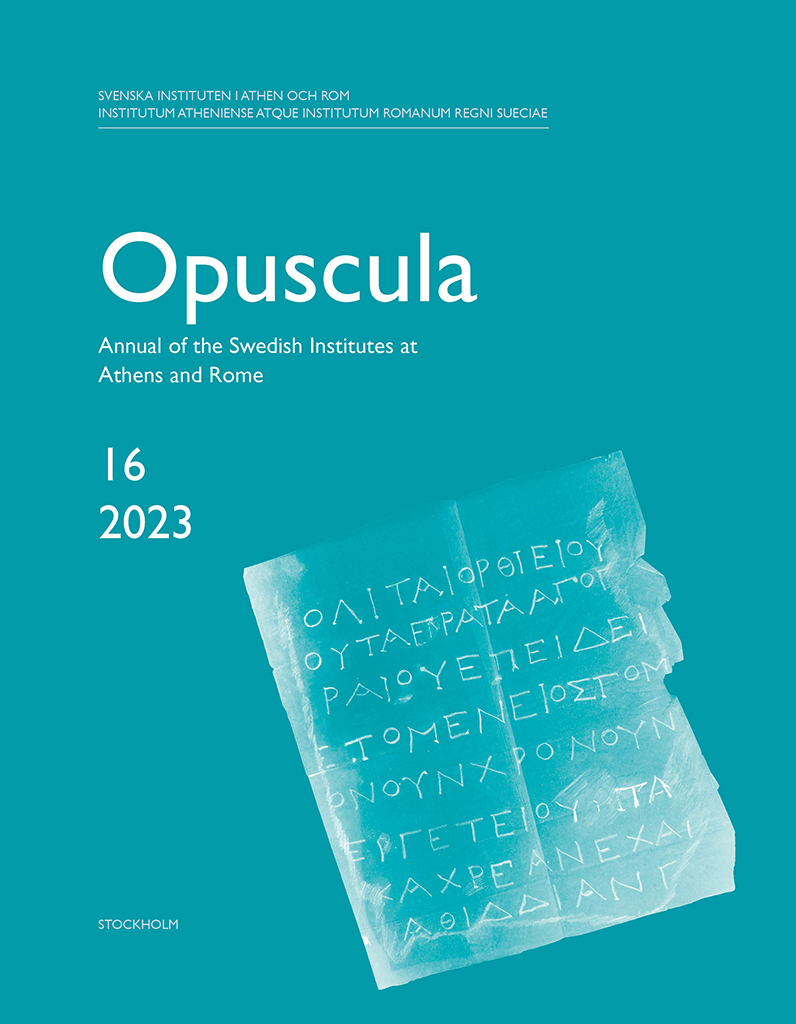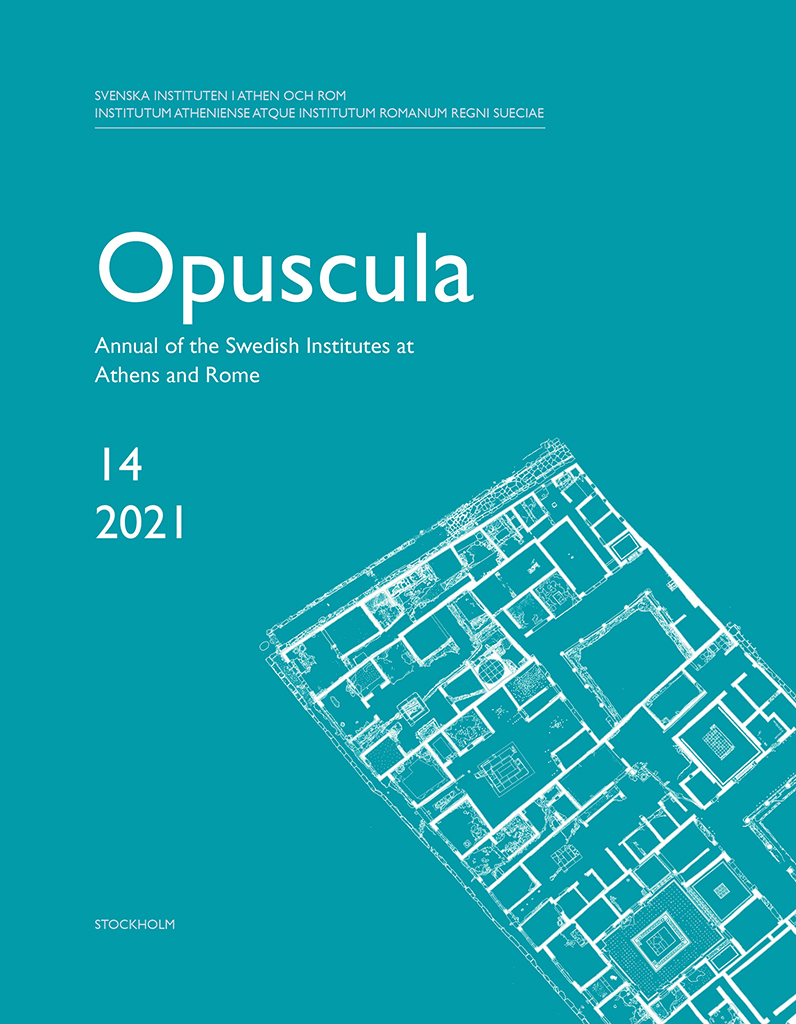Opuscula 16 is published by the Swedish Institutes at Athens and Rome. Distributed by Eddy.se AB. View volume at ERIH PLUS. All content available with open access. Review article. Gender in ancient Rome: New directions and voices By Lovisa Brännstedt & Lewis Webb Books reviewed R. Ancona & G. Tsouvala, eds., New directions in the study of women in Greco-Roman antiquity, New York: Oxford University Press 2021. xvi + 278 pp., 11 figs, 8 colour pls. ISBN 9780190937638 https://doi.org/10.1093/oso/9780190937638.001.0001 B. Longfellow & M. Swetnam-Burland, eds., Women’s lives, women’s voices. Roman material culture and female agency in the Bay of Naples, Austin: University of Texas Press 2021. 408 pp., 76 figs, 16 colour pls. ISBN 9781477323588 https://doi.org/10.7560/323588 F. Rohr Vio, Powerful matrons. New political actors in the Late Roman Republic, Zaragoza: Prensas de la Universidad de Zaragoza 2022. 236 pp. ISBN 9788413404523 Bibliographical information Lovisa Brännstedt & Lewis Webb, ‘Review article. Gender in ancient Rome: New directions and voices’, Opuscula. Annual of the Swedish Institutes at Athens and Rome (OpAthRom) 16, Stockholm 2023, 249-255. ISSN: 2000-0898. ISBN: 978-91-977799-5-1. Softcover, 268 pages. https://doi.org/10.30549/opathrom-16-11
Opuscula 14 is published with open access. Printed edition distributed by Eddy.se AB. Also available at Amazon.com, Adlibris, and Bokus. View volume at ERIH PLUS. Commending a freedman. Virtues and masculinities in the recommendation letters of Cicero and Pliny the Younger By Lisa Hagelin (Uppsala University) Abstract This article explores Roman freedmen’s masculine positions expressed as virtues, qualities, and ideals in the recommendation letters of Cicero and Pliny the Younger. It discusses whether there were specific freedman virtues, qualities, and ideals and what consequences their existence or absence had for freedmen’s constructions of masculinity. A critical close reading of the texts is applied, combined with theories of masculinity, where hegemonic masculinity is a key concept. It is concluded that there were no virtues or qualities that were specific or exclusive to freedmen. A distinct set of virtues for freedmen did not exist in Late Republican and Early Imperial Rome, since much the same behaviour and qualities are seen as manly and desirable for freedmen as for freeborn male citizens of high birth. However, freedmen cannot comply with the hegemonic masculinity in full, since they cannot embody the Roman masculine ideal of the vir bonus and cannot be associated with the Roman…


